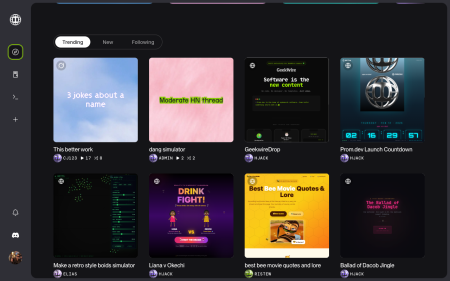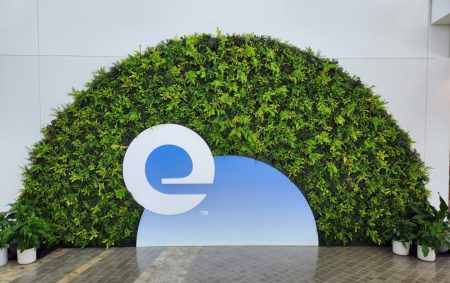Deb Hall Lefevre Retires: Tech Executive’s Legacy and Industry Shifts
In a heartfelt LinkedIn announcement this Sunday, Deb Hall Lefevre, the former Chief Technology Officer at Starbucks, revealed her decision to retire after an impressive career spanning multiple global brands. “After an incredible journey leading technology and digital transformation across some of the world’s most iconic brands, including Starbucks, Circle K/Couche Tard and McDonald’s, it’s time to step into retirement,” she wrote. Her departure from Starbucks actually occurred last month, as reported by Reuters on September 26, citing an internal memo to staff. Her retirement comes at a pivotal moment for Starbucks, which is undergoing significant technological and organizational changes under new CEO Brian Niccol. Hall Lefevre’s career stands as a testament to the evolving relationship between technology and consumer brands, having spent over 16 years at McDonald’s as a corporate vice president and CIO before joining Circle K Stores as an Executive Vice President and CTO, and finally landing at Starbucks in 2022.
The timing of Hall Lefevre’s exit coincides with broader restructuring at Starbucks, where approximately 900 non-retail employees are being laid off and underperforming stores across the U.S. and Canada are closing their doors. This follows an earlier round of cuts in February that affected 1,100 corporate workers. Under Niccol’s leadership, the former Chipotle CEO who took the helm last year, Starbucks is implementing numerous technological adjustments in an attempt to revitalize declining sales. Ningyu Chen, who previously served as Senior Vice President of Global Experience Technology, has stepped in as interim Chief Technology Officer following Hall Lefevre’s departure. These developments reflect the ongoing challenges facing retail giants as they navigate post-pandemic consumer behaviors and increasingly competitive markets. For Hall Lefevre personally, retirement means “more time with family, continuing my tech and board work, and cheering on the next generation of leaders shaping the future,” suggesting her influence in the technology sector may continue, albeit in different capacities.
Amazon’s hardware division is also experiencing leadership changes, with Lindo St. Angel, Vice President of Hardware for the company’s Lab126 devices group, announcing his departure at the end of the month after a 14-year tenure. St. Angel joined Lab126 in 2010, contributing to the Silicon Valley-based business unit that has been instrumental in developing Amazon’s hardware ecosystem since its founding in 2004. Under his leadership, Lab126 helped create pivotal Amazon devices including the Kindle Fire, Fire TV, Amazon Echo, and various other hardware products that have defined Amazon’s consumer technology portfolio. The departure of such a long-serving executive signals potential shifts in Amazon’s hardware strategy as the tech giant continues to evolve its product offerings in an increasingly competitive smart device landscape. The news, first reported by Reuters, comes as many tech companies are reassessing their hardware divisions amid changing consumer demands and economic pressures.
In a significant move for the healthcare data sector, Mark Jewett has joined Komodo Health as Chief Marketing Officer. Based in New York City, Komodo Health has established itself as a formidable player in the health data industry since its founding in 2014, reaching a valuation of $3.3 billion in 2021. The company specializes in helping healthcare stakeholders integrate data and generate insights related to treatment, research, and other critical healthcare functions. Jewett brings substantial experience to the role, having previously served as a Senior Vice President at Informatica and Chief Marketing Officer at SmartRecruiters. His background also includes a stint as Senior Vice President and co-interim CMO at Tableau, as well as 15 years at Microsoft in various leadership positions. This appointment highlights the growing importance of sophisticated marketing strategies in the healthcare technology sector, where communicating complex data capabilities to medical and research professionals requires specialized expertise.
The cloud computing landscape continues to see leadership transitions, with Nancy Mounir joining Oracle Cloud Infrastructure as a Vice President leading security programs and platforms. Mounir’s move comes after more than 12 years at Microsoft, where she most recently served as a Senior Director and Chief of Staff overseeing the company’s Secure Future Initiative. In a LinkedIn post expressing her enthusiasm for the new role, Mounir stated she was “looking forward to a great journey of learning, innovation and growth with the Security Platform team!” while also expressing gratitude for her time at Microsoft and pride in their collective accomplishments. Her career path included an initial period at Microsoft from 2012 to 2015 working in supply chain, followed by a year at Amazon on advertising and accounting teams, before returning to Microsoft in 2016. This transition reflects the ongoing competition among major cloud providers to attract top talent, particularly in the critical area of cloud security.
Meanwhile, internal shifts at Microsoft continue with Priya Vaidyanathan taking on a new role as Director of Product and Design for Microsoft’s AI skilling platform. Vaidyanathan, who returned to Microsoft in 2020 after two previous stints and was most recently a Group Product Manager, brings diverse experience to the position, having founded the mealkit startup SnapCurry and worked as a Senior Technical Product Manager at Amazon. In a LinkedIn post about her new role, she emphasized that “this next chapter is about helping people everywhere gain the skills and confidence to grow with AI, creating opportunity, resilience, and impact at every level.” In other regional tech leadership news, Jim Chi has been named Executive Director of Oregon Startup Center, which is undergoing a relaunch according to the Portland Business Journal. Chi, who simultaneously serves as President of Oregon Sports Angels and has extensive product management experience, will likely play a key role in fostering entrepreneurship in the Pacific Northwest tech ecosystem, where startups continue to seek support and mentorship in a challenging funding environment.















